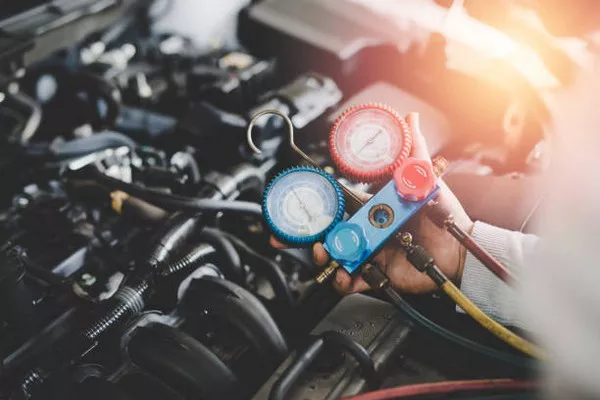Maintaining a comfortable driving experience is essential, especially during hot summer months. The air conditioning (AC) system in your car plays a crucial role in keeping the interior cool and pleasant. However, like any other automotive component, the AC compressor may eventually require replacement, and understanding the factors influencing the cost is essential for car owners. In this article, we will delve into the intricacies of AC compressor replacement, exploring the various factors that contribute to the overall cost.
Functionality of AC Compressor:
The AC compressor is a vital component of your car’s air conditioning system. Its primary function is to compress the refrigerant gas and pump it through the system, facilitating the cooling process. Over time, due to wear and tear or other issues, the compressor may fail, leading to a decline in the overall performance of the AC system.
Signs of a Failing AC Compressor:
Recognizing the symptoms of a failing AC compressor can help car owners address issues before they escalate. Common signs include unusual noises, such as squealing or grinding, poor or uneven cooling, and visible leaks around the compressor. If any of these symptoms arise, it is crucial to consult a professional mechanic for a thorough inspection.
Diagnostic Costs:
Before determining the cost of AC compressor replacement, a proper diagnosis is necessary. Automotive professionals will conduct a comprehensive inspection to identify the root cause of the AC issues. Diagnostic costs typically range from $50 to $100, depending on the complexity of the problem and the shop’s pricing structure.
AC Compressor Replacement Costs:
The cost of replacing an AC compressor can vary widely based on several factors, including the make and model of the vehicle, the type of compressor, and the labor rates charged by the auto repair shop. On average, car owners can expect to pay between $500 and $1,000 for a standard AC compressor replacement. Luxury or imported vehicles may incur higher costs due to the availability and pricing of replacement parts.
See Also How Much Does An Ac Compressor Cost?
Type of AC Compressor:
There are two main types of AC compressors: fixed and variable displacement compressors. Fixed displacement compressors are more common and generally less expensive to replace. On the other hand, variable displacement compressors, often found in high-end vehicles, tend to be more complex and may result in a higher replacement cost.
OEM vs. Aftermarket Parts:
Car owners often face the choice between Original Equipment Manufacturer (OEM) and aftermarket parts when replacing the AC compressor. While OEM parts are designed and produced by the vehicle manufacturer, aftermarket parts are produced by third-party companies. OEM parts may be more expensive, but they often come with a higher level of quality assurance and compatibility. Aftermarket parts can offer cost savings, but the quality may vary.
Labor Costs:
The labor costs associated with AC compressor replacement depend on the complexity of the job and the hourly rates charged by the auto repair shop. On average, labor costs can range from $100 to $200 per hour. The replacement process involves evacuating the refrigerant, removing the old compressor, installing the new one, and recharging the system with refrigerant. Labor costs can significantly impact the overall expense of AC compressor replacement.
Additional Repairs:
In some cases, a failing AC compressor may cause damage to other components within the AC system. It’s not uncommon for mechanics to recommend additional repairs or replacements, such as replacing the receiver-drier or the expansion valve, to ensure the longevity and optimal performance of the entire system. These additional repairs can contribute to the overall cost.
Location and Shop Rates:
Geographical location plays a significant role in the overall cost of AC compressor replacement. Auto repair shops in urban areas or regions with a higher cost of living may have higher labor rates. It’s advisable to obtain quotes from multiple reputable shops in your area to ensure a fair and competitive price.
Preventive Maintenance and Cost Savings:
To mitigate the risk of AC compressor failure and the associated replacement costs, car owners can adopt preventive maintenance practices. Regularly servicing the AC system, checking for refrigerant leaks, and addressing any issues promptly can help prolong the life of the compressor and prevent more extensive damage.
Conclusion:
The cost of AC compressor replacement in a car is influenced by various factors, including the type of compressor, labor costs, the choice between OEM and aftermarket parts, and additional repairs. Car owners should prioritize regular maintenance and address AC issues promptly to avoid escalating repair costs. When faced with a failing AC compressor, seeking professional diagnosis and obtaining quotes from reputable auto repair shops can help make informed decisions and ensure a comfortable and cool driving experience.

